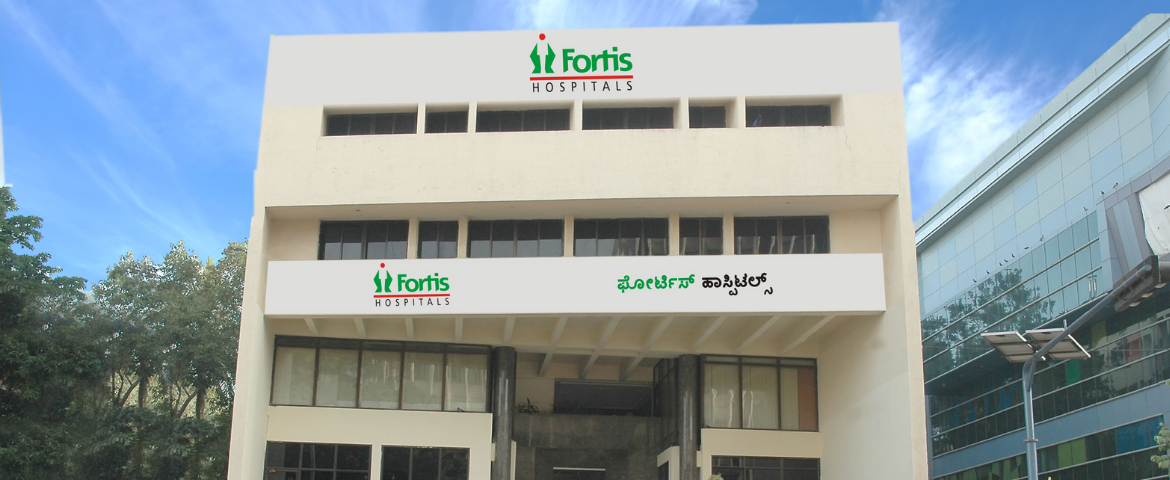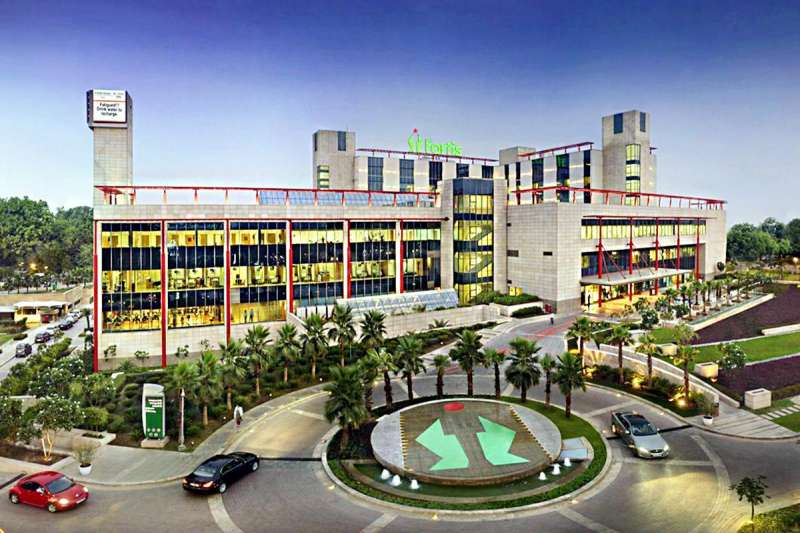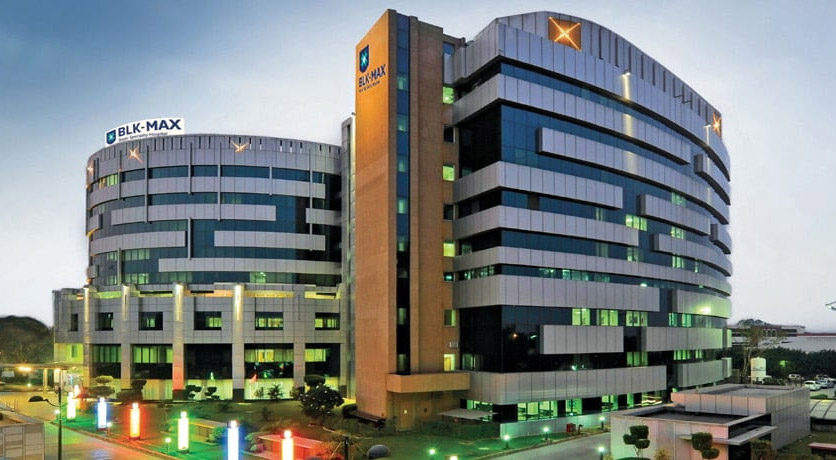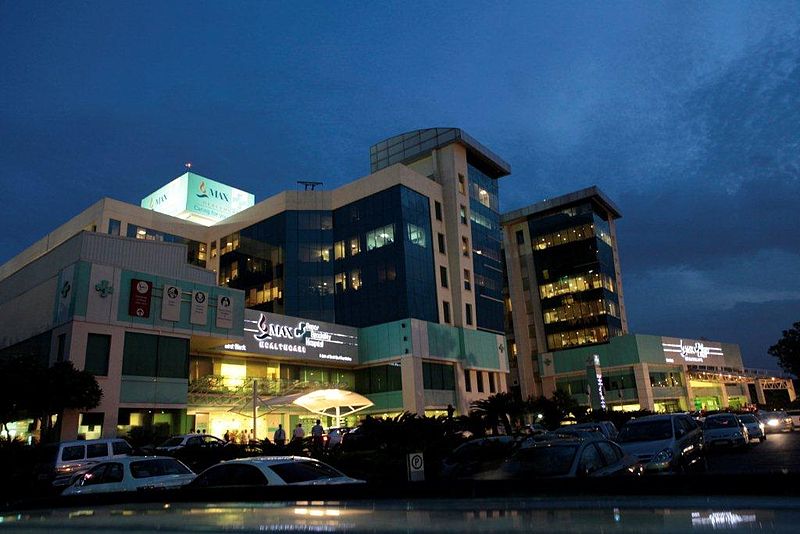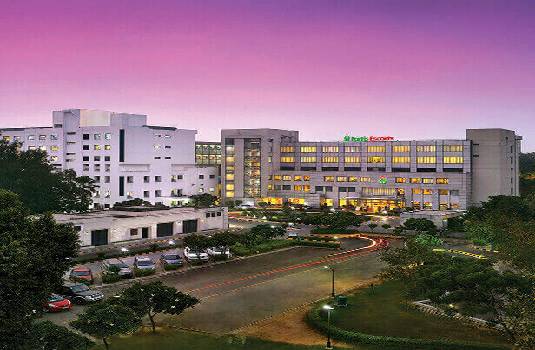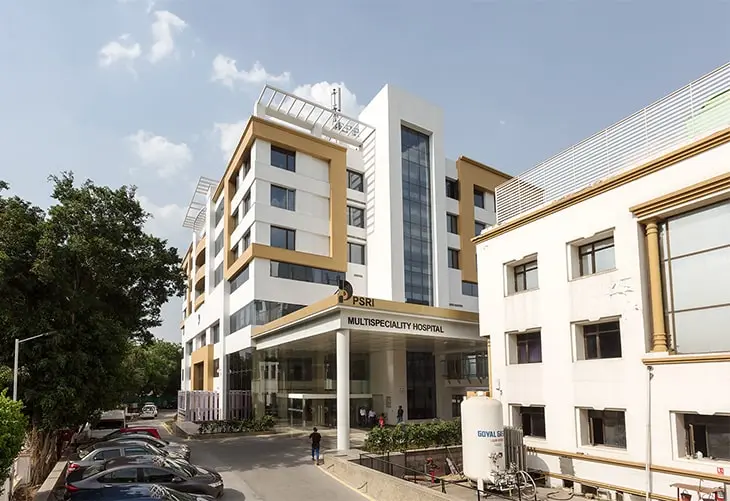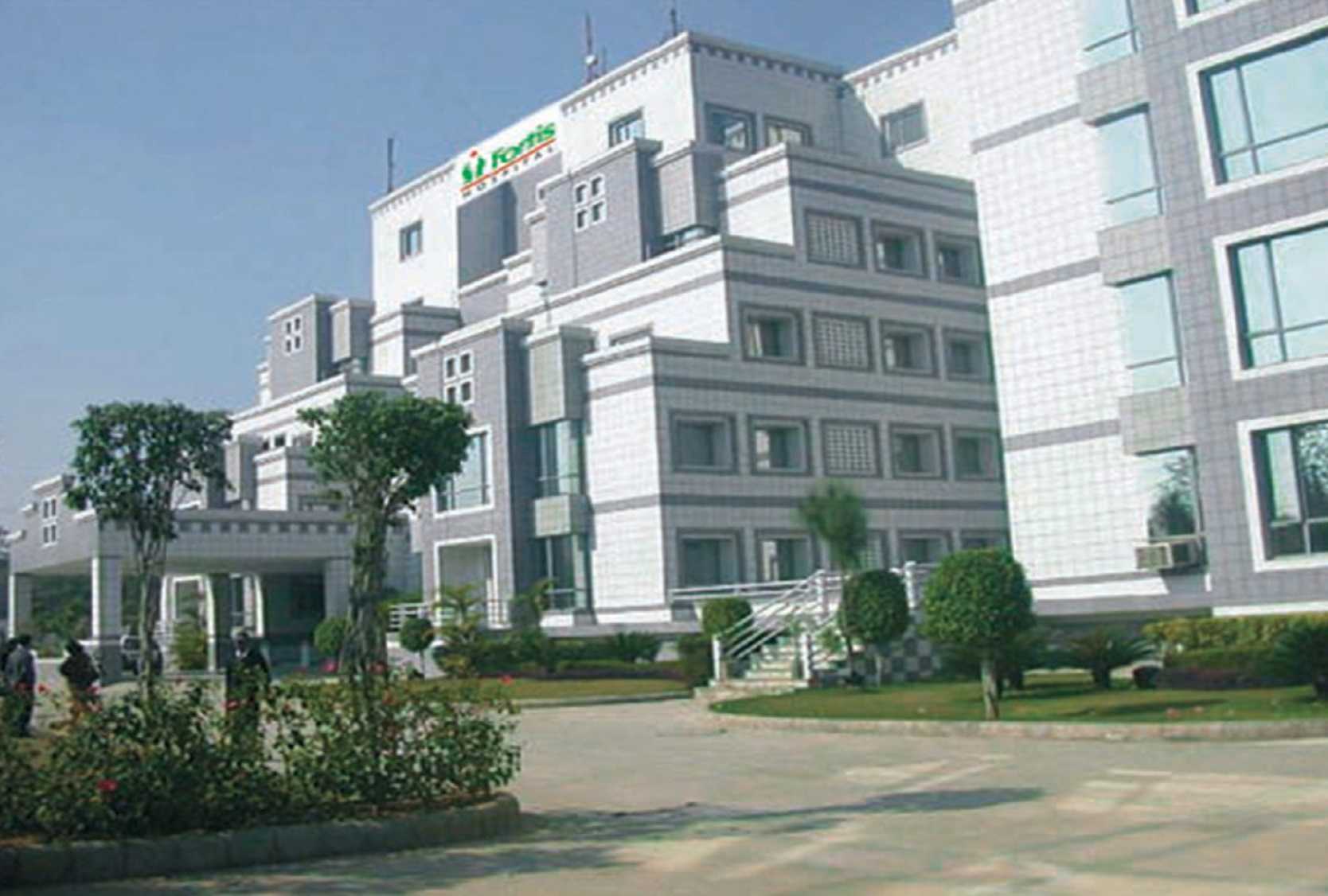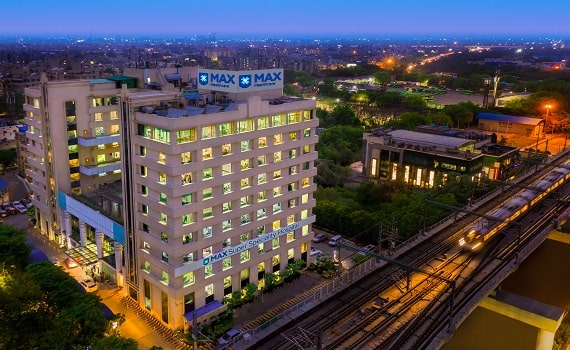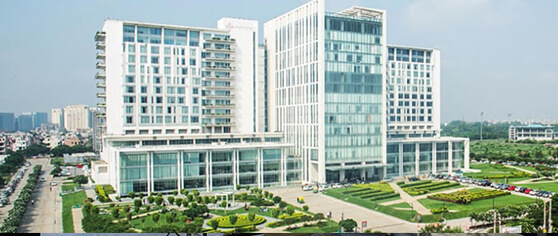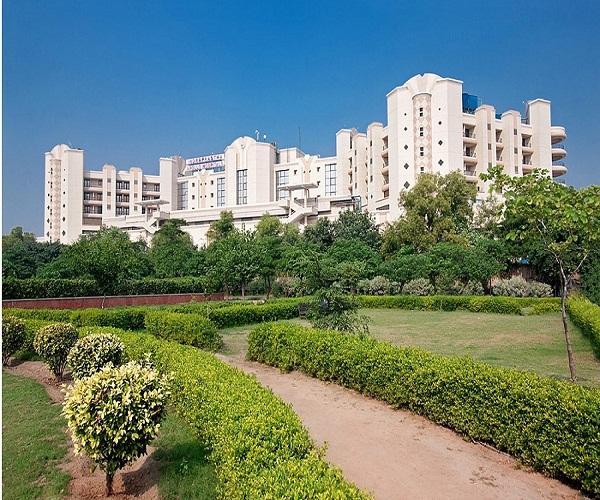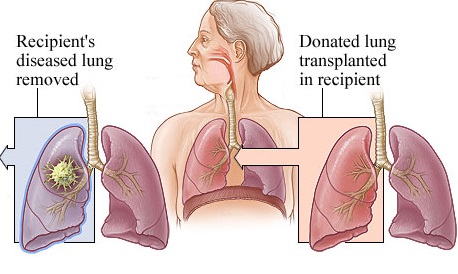Lung Transplant cost in India
The cost of Lung Transplant in India ranges
from USD 65000 to USD 120000
Lung Transplant:
A heart transplant is a procedure that involves replacing a sick or failing heart with a healthy donor heart. People who need a heart transplant are mainly those whose health hasn't improved sufficiently with drugs or other operations. When various therapies for cardiac issues have failed, resulting in heart failure, heart transplants are undertaken.
Lung Transplant:
A heart transplant is a procedure that involves replacing a sick or failing heart with a healthy donor heart. People who need a heart transplant are mainly those whose health hasn't improved sufficiently with drugs or other operations.
When various therapies for cardiac issues have failed, resulting in heart failure, heart transplants are undertaken.
Disease Overview:
Chronic obstructive pulmonary disease (COPD)
Chronic obstructive pulmonary disease (COPD) is a long-term inflammatory lung condition that causes airflow obstruction in the lungs. Breathing difficulties, cough, mucus (sputum) production, and wheezing are all symptoms. Long-term exposure to irritating gases or particulate matter, most commonly cigarette smoke, is the most common cause. COPD patients are more likely to develop heart disease, lung cancer, and a range of other illnesses.
The two most frequent illnesses that cause COPD are emphysema and chronic bronchitis. These two problems are frequently present at the same time and can vary in severity among COPD patients.
Chronic bronchitis is an infection of the bronchial tubes, which transport air to and from the lungs' air sacs (alveoli). Coughing and mucus (sputum) are present on a daily basis.
Emphysema is a lung disease in which the alveoli at the end of the lungs' tiniest air channels (bronchioles) are damaged by harmful exposure to cigarette smoke and other irritating chemicals and particulates.
COPD is curable, despite the fact that it is a progressive condition that worsens with time. Most patients with COPD can obtain good symptom control and quality of life with effective care, as well as a lower chance of developing additional illnesses.
Disease Signs and Symptoms:
COPD symptoms don't normally develop until there's been a lot of lung damage, and they usually become worse with time, especially if you keep smoking.
COPD can cause the following signs and symptoms:
- Breathing problems, especially while doing vigorous activities
- Wheezing
- Tightness in the chest
- A persistent cough that produces clear, white, yellow, or greenish mucus (sputum).
- Respiratory infections are common.
- Energy deficiency
- Weight reduction that was unintentional (in later stages)
- Ankle, foot, or leg swelling
- People with COPD are more prone to have exacerbations, which are periods when their symptoms become worse than normal and last for several days.
Disease Causes:
Tobacco smoking is the leading cause of COPD in industrialised nations. COPD is common in persons in underdeveloped countries who are exposed to pollutants from cooking and heating in poorly ventilated houses.
Although many smokers with extended smoking histories may acquire impaired lung function, only a small percentage of chronic smokers develop clinically evident COPD. Some smokers have lung diseases that are less prevalent. Until a more complete examination is undertaken, they may be mistaken as having COPD.
How are your lungs affected?
Through two huge tubes, air goes down your windpipe (trachea) and into your lungs (bronchi). These tubes split into numerous smaller tubes (bronchioles) that finish in clusters of tiny air sacs inside your lungs, much like the branches of a tree (alveoli).
The walls of the air sacs are exceedingly thin and filled with small blood veins (capillaries). The oxygen in the air you breathe enters your circulation through these blood arteries. Carbon dioxide, a waste product of metabolism, is also exhaled at the same moment.
To drive air out of your body, your lungs rely on the inherent suppleness of your bronchial tubes and air sacs. They lose their elasticity and over-expand as a result of COPD, Which Leaves some air trapped in your lung while you exhale.
Occlusion of the airway can be caused by a variety of factors.
Emphysema is one of the most common causes of airway blockage. The delicate walls and elastic fibres of the alveoli are destroyed by this lung illness. When you exhale, your small airways compress, restricting airflow out of your lungs.
Bronchitis that has been present for a long time. Your bronchial tubes become inflamed and narrower as a result of this illness, and your lungs generate more mucus, which can further clog the restricted tubes. In an attempt to clean your airways, you acquire a persistent cough.
Smoke from cigarettes and other irritants
Long-term cigarette smoking is the leading cause of lung damage in the great majority of patients with COPD. However, because not all smokers get COPD, there are certainly additional variables at play, such as a hereditary sensitivity to the illness.
Cigar smoking, secondhand smoke, pipe smoke, air pollution, and job exposure to dust, smoke, or fumes are all examples of irritants that can cause COPD.
Factors that are at risk:
COPD can be caused by a number of reasons, including:
Tobacco smoke exposure. Long-term cigarette smoking is the most major risk factor for COPD. The bigger your danger, the longer you smoke and the more packs you smoke. People who smoke pipes, cigars, or marijuana, as well as those who are exposed to a lot of secondhand smoke, may be at risk.
People who suffer from asthma. Asthma, a chronic inflammatory airway condition, might put you at risk for COPD. Asthma and smoking together increase the risk of COPD considerably higher.
Dust and chemical exposure in the workplace. Chemical fumes, vapours, and dusts in the workplace can irritate and inflame your lungs over time.
Fumes from burning fuel are inhaled. People in impoverished countries who are exposed to fumes from cooking and heating in poorly ventilated houses are more likely to acquire COPD.
Genetics. Some instances of COPD are caused by the rare genetic condition alpha-1-antitrypsin deficiency. Certain smokers are likely to be more sensitive to the disease due to other hereditary reasons.
Disease Diagnosis:
COPD is a disease that is frequently misdiagnosed. Many persons with COPD do not receive a diagnosis until the disease has progressed.
To diagnose your disease, your doctor will go through your signs and symptoms, talk about your family and medical history, and talk about any lung irritants you've been exposed to, particularly cigarette smoke. To diagnose your disease, your doctor may request many tests.
The following tests may be performed:
Tests of lung (pulmonary) function. These tests determine how much air you can inhale and exhale, as well as whether your lungs are supplying your blood with adequate oxygen. Spirometry is the most frequent test, and it involves blowing into a big tube attached to a tiny machine to determine how much air your lungs can contain and how quickly you can blow it out.
Measurement of lung volumes and diffusing capacity, a six-minute walk test, and pulse oximetry are among the other tests available.
X-ray of the chest. Emphysema, one of the most common causes of COPD, can be seen on a chest X-ray. Other lung diseases or heart failure can also be ruled out using an X-ray.
CT scan is a type of x-ray. A CT scan of your lungs can detect emphysema and assess whether you might benefit from COPD surgery. Lung cancer can also be detected with CT scans.
Analyze the blood gases in the arteries. This blood test determines how efficiently your lungs transport oxygen and remove carbon dioxide from your blood.
Tests in the lab Although lab tests aren't used to diagnose COPD, they can help you figure out what's causing your symptoms or rule out alternative possibilities. For example, lab testing may be conducted to see if you have alpha-1-antitrypsin deficiency, a genetic condition that can cause COPD in certain people. If you have a family history of COPD or if you acquire COPD at an early age, you may need this test.
Disease Treatment:
Many patients with COPD have mild versions of the illness that require no treatment other from quitting smoking. Even in the later stages of the disease, there is effective treatment that can manage symptoms, limit progression, lower the risk of complications and exacerbations, and enhance your ability to live an active life.
Smoking cessation
The most important step in any COPD treatment regimen is to stop smoking. Smoking cessation can help prevent COPD from worsening and limiting your capacity to breathe. However, stopping smoking is a difficult task. And if you've tried and failed to stop before, this process may feel especially overwhelming.
Discuss nicotine replacement products and drugs with your doctor, as well as how to deal with relapses. A support group for those who wish to quit smoking may also be recommended by your doctor. Also, wherever feasible, avoid secondhand smoking exposure.
Medications
COPD symptoms and consequences are treated with a variety of medicines. Some prescriptions should be taken on a regular basis, while others should be used only as necessary.
- Bronchodilators
- Steroids inhaled
- Inhalers with a combination of ingredients
- Steroids used orally
- Inhibitors of phosphodiesterase-4
- Theophylline\sAntibiotics
Therapies for the lungs
These additional treatments are frequently used by doctors for persons with moderate or severe COPD:
The use of oxygen as a treatment. Supplemental oxygen may be required if there is insufficient oxygen in your blood. There are a variety of devices that give oxygen to your lungs, including lightweight, portable ones that you may take with you when doing errands or getting around town.
Some COPD patients only require oxygen when they are active or sleeping. Others utilise oxygen on a regular basis. Oxygen therapy has been shown to improve quality of life and is the only COPD treatment that has been shown to lengthen life. Discuss your requirements and alternatives with your doctor.
Program for pulmonary rehabilitation. These programmes usually include a combination of education, exercise, nutrition recommendations, and counselling. You'll work with a number of professionals who will customise your rehabilitation programme to your specific needs.
Following spells of worsening COPD, pulmonary rehabilitation may help you avoid hospitalisation, improve your capacity to engage in daily activities, and enhance your quality of life. Consult your doctor about getting referred to a programme.
Noninvasive ventilation treatment in the home
Although there is evidence to support the use of breathing equipment such as bilevel positive airway pressure (BiPAP) in hospitals, there is now some evidence to support its usage at home. A noninvasive ventilation treatment equipment with a mask aids in breathing improvement and reduces carbon dioxide retention (hypercapnia), which can lead to acute respiratory failure and hospitalisation. More study is required to find the most effective applications of this treatment.
Taking care of exacerbations
Even if you're on therapy, you can have days or weeks where your symptoms get worse. This is known as an acute exacerbation, and if not treated promptly, it can lead to lung failure.
Exacerbations can be brought on by a respiratory illness, air pollution, or other inflammatory factors. Whatever the cause, if you detect a continuous increase in coughing or a change in your mucus, or if you have trouble breathing, seek medical care right once.
Exacerbations may necessitate the use of additional drugs (such as antibiotics, steroids, or both), supplementary oxygen, or hospitalisation.
Once your symptoms have improved, talk to your doctor about ways to minimise future exacerbations, such as stopping smoking, using inhaled steroids, long-acting bronchodilators, or other drugs, receiving your yearly flu vaccination, and avoiding air pollution as much as possible.
Surgery
Surgery may be an option for some patients with severe emphysema who aren't getting enough relief from treatments. Surgical options include the following:
Surgery to reduce the size of the lungs. Your surgeon will remove tiny wedges of damaged lung tissue from the upper lungs during this procedure. This frees up space in your chest cavity, allowing your remaining healthy lung tissue to expand and your diaphragm to function more effectively. This operation can help some individuals live longer and enhance their quality of life.
Endoscopic lung volume reduction, a minimally invasive treatment, to treat adults with COPD. In the lung, a small one-way endobronchial valve is implanted, allowing the most affected lobe to contract and the healthy section of the lung to expand and operate more freely.
Transplantation of the lungs. For certain persons who satisfy certain requirements, lung transplantation may be a possibility. Transplantation can help you breathe better and be more active. However, it is a major procedure with severe dangers, such as organ rejection, and you will be required to take immune-suppressing drugs for the rest of your life.
Bullectomy. When the walls of the air sacs (alveoli) are damaged, large air gaps (bullae) emerge in the lungs. These bullae can grow to be quite enormous, causing breathing difficulties. Doctors remove bullae from the lungs during a bullectomy to assist enhance air flow.
Country wise cost comparison for Lung Transplant:
| Country | Cost |
|---|---|
| India | $67050 |
| Canada | $92168 |
Treatment and Cost
115
Total Days
In Country
- 25 Day in Hospital
- 2 No. Travelers
- 90 Days Outside Hospital
Treatment cost starts from
$74500
Popular Hospital & Clinic
Featured Hospital
9 Hospitals
Types of Lung Transplant in Fortis Memorial Research Institute and its associated cost
| Treatment Option | Approximate Cost Range (USD) |
|---|---|
| No Treatment option added | |
- Address: Sector - 44, Opp. HUDA City Center,Gurgaon, Haryana - 122002, India
- Facilities related to Fortis Memorial Research Institute: Private Rooms, Translator, Nursery / Nanny Services, Airport Pick up, Personal Assistance / Concierge, Free Wifi, Local Tourism Options, International Cuisine, Phone in Room, Private Driver / Limousine Services, Post operative followup, Mobility Accessible Rooms, Online Doctor Consultation, Air Ambulance, Religious Facilities, Rehabilitation, Cafe, TV in room, Car Hire, Health Insurance Coordination,
50
DOCTORS IN 35 SPECIALITIES
20+
FACILITIES & AMENITIES
Types of Lung Transplant in BLK-Max Super Speciality Hospital and its associated cost
| Treatment Option | Approximate Cost Range (USD) |
|---|---|
| No Treatment option added | |
- Address: Pusa Road, New Delhi-110005
- Facilities related to BLK-Max Super Speciality Hospital: Private Rooms, Translator, Nursery / Nanny Services, Personal Assistance / Concierge, Free Wifi, International Cuisine, Phone in Room, Private Driver / Limousine Services, Post operative follow-up, Mobility Accessible Rooms, Rehabilitation, Cafe, TV in room, Car Hire, Health Insurance Coordination
17
DOCTORS IN 33 SPECIALITIES
20+
FACILITIES & AMENITIES
Types of Lung Transplant in Max Super Speciality Hospital and its associated cost
| Treatment Option | Approximate Cost Range (USD) |
|---|---|
| No Treatment option added | |
- Address: Max Super Speciality Hospital No. 1, 2, Press Enclave Road, Mandir Marg, Saket Institutional Area, Saket, New Delhi, Delhi, 110017, India
- Facilities related to Max Super Speciality Hospital:
53
DOCTORS IN 34 SPECIALITIES
20+
FACILITIES & AMENITIES
Types of Lung Transplant in Fortis Escorts Heart Institute and its associated cost
| Treatment Option | Approximate Cost Range (USD) |
|---|---|
| No Treatment option added | |
- Address: Okhla Road,New Delhi - 110 025 (INDIA)
- Facilities related to Fortis Escorts Heart Institute: Private Rooms, Translator, Nursery / Nanny Services, Personal Assistance / Concierge, Free Wifi, International Cuisine, Phone in Room, Private Driver / Limousine Services, Post operative follow-up, Mobility Accessible Rooms, Rehabilitation, Cafe, TV in room, Car Hire, Health Insurance Coordination
19
DOCTORS IN 33 SPECIALITIES
20+
FACILITIES & AMENITIES
Types of Lung Transplant in PSRI Hospital and its associated cost
| Treatment Option | Approximate Cost Range (USD) |
|---|---|
| No Treatment option added | |
- Address: Press Enclave Marg, J Pocket, Phase II, Sheikh Sarai, New Delhi, Delhi 110017
- Facilities related to PSRI Hospital: Private Rooms, Translator, Nursery / Nanny Services, Personal Assistance / Concierge, Free Wifi, International Cuisine, Phone in Room, Private Driver / Limousine Services, Post operative follow-up, Mobility Accessible Rooms, Rehabilitation, Cafe, TV in room, Car Hire, Health Insurance Coordination
8
DOCTORS IN 33 SPECIALITIES
20+
FACILITIES & AMENITIES
Types of Lung Transplant in Fortis Flt. Lt. Rajan Dhall Hospital, Vasant Kunj, Delhi and its associated cost
| Treatment Option | Approximate Cost Range (USD) |
|---|---|
| No Treatment option added | |
- Address: Fortis Flt. Lt. Rajan Dhall Hospital, Aruna Asaf Ali Marg, Pocket 1, Sector B, Vasant Kunj, New Delhi, Delhi 110070
- Facilities related to Fortis Flt. Lt. Rajan Dhall Hospital, Vasant Kunj, Delhi: Private Rooms, Translator, Nursery / Nanny Services, Personal Assistance / Concierge, Free Wifi, International Cuisine, Phone in Room, Private Driver / Limousine Services, Post operative follow-up, Mobility Accessible Rooms, Rehabilitation, Cafe, TV in room, Car Hire, Health Insurance Coordination
46
DOCTORS IN 34 SPECIALITIES
20+
FACILITIES & AMENITIES
Types of Lung Transplant in MAX Super Speciality hospital, Patpadganj Delhi and its associated cost
| Treatment Option | Approximate Cost Range (USD) |
|---|---|
| No Treatment option added | |
- Address: 108A, Indraprasth Extension, Patpadganj, New Delhi- 110092, India
- Facilities related to MAX Super Speciality hospital, Patpadganj Delhi: Private Rooms, Translator, Nursery / Nanny Services, Personal Assistance / Concierge, Free Wifi, International Cuisine, Phone in Room, Private Driver / Limousine Services, Post operative follow-up, Mobility Accessible Rooms, Rehabilitation, Cafe, TV in room, Car Hire, Health Insurance Coordination
52
DOCTORS IN 33 SPECIALITIES
20+
FACILITIES & AMENITIES
Types of Lung Transplant in Medanta-The Medicity, Gurgaon and its associated cost
| Treatment Option | Approximate Cost Range (USD) |
|---|---|
| No Treatment option added | |
- Address: CH Baktawar Singh Road, Sector 38, Gurugram, Haryana 122001
- Facilities related to Medanta-The Medicity, Gurgaon: TV in room Private rooms, Free Wifi, Phone in Room, Mobility accessible rooms, Family accommodation, Laundry, Welcome Safe in the room, Nursery / Nanny services. Dry cleaning, Personal assistance / Concierge Religious facilities, Fitness Spa and wellness Café, Business Centre, Shop, Dedicated smoking areas, Beauty Salon, Special offer for group stays, Parking available, Health insurance coordination, Medical travel insurance, Foreign currency exchange, ATM, Credit Card, Debit Card, Net banking, Diet on Request, Restaurant, International Cuisine, Treatment Related Medical records transfer, Online doctor consultation, Rehabilitation, Pharmacy, Document legalization, Post operative follow-up, Language Interpreter, Translation services, Transportation, Airport pickup, Local tourism options, Local transportation booking, Visa / Travel office, Car Hire, Private driver / Limousine services, Air ambulance
52
DOCTORS IN 33 SPECIALITIES
20+
FACILITIES & AMENITIES
Types of Lung Transplant in Indraprastha Apollo Hospitals, New Delhi and its associated cost
| Treatment Option | Approximate Cost Range (USD) |
|---|---|
| No Treatment option added | |
- Address: Mathura Rd, Jasola Vihar, New Delhi, Delhi 110076
- Facilities related to Indraprastha Apollo Hospitals, New Delhi: Private Rooms, Translator, Nursery / Nanny Services, Personal Assistance / Concierge, Free Wifi, International Cuisine, Phone in Room, Private Driver / Limousine Services, Post operative follow-up, Mobility Accessible Rooms, Rehabilitation, Cafe, TV in room, Car Hire, Health Insurance Coordination
37
DOCTORS IN 33 SPECIALITIES
20+
FACILITIES & AMENITIES
Related Packages
More Related Information
Some of the top rated hospitals are:
- India
- Fortis Memorial Research Institute
- BLK-Max Super Speciality Hospital
- Medanta-The Medicity, Gurgaon
- Indraprastha Apollo Hospitals, New Delhi
- Canada
- Toronto General Hospital
- Jewish General Hospital
- Montreal General Hospital (McGill University Health Centre)
- Royal Jubilee Hospital (RJH)
- The Royal Victoria Hospital (McGill University Health Centre)
- Centre hospitalier de l’Université de Montréal (CHUM)
- Victoria General Hospital
- St Michaels Hospital Toronto
- Hamilton General Hospital
- MCMASTER UNIVERSITY MEDICAL CENTRE
- University of Ottawa Heart Institute
- United Kingdom
- Cancer Centre London
- The Highgate Hospital
- The Holly Hospital
- The Parkside Hospital
- Circle Reading Hospital
- Shirley Oaks Hospital
- St Edmunds Hospital
- The London Clinic
- Woodlands Hospital
- The Christie NHS Foundation Trust
- Royal Marsden Hospital
- Queen Elizabeth Hospital Birmingham
- London Bridge Hospital, HCA Healthcare
- Saudi Arabia

